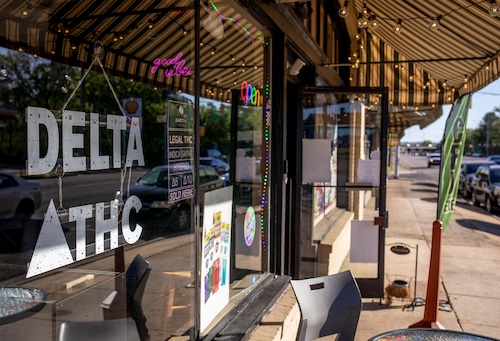Looking to sidestep controversy over the Cannabis Control Commission leadership, regulators highlighted the increasing profitability of the industry Thursday while discussing their work to implement a state law promoting diversity in the sector and creating a path for social consumption sites.
The industry hit a milestone last week, with adult-use retailers generating a cumulative $6 billion in gross revenues since operations began in 2018, Acting CCC Chair Ava Callender Concepcion said during an annual “State of Cannabis” event. On April 20, considered a holiday for cannabis enthusiasts, the Bay State industry logged its best-ever sales day, bringing in $8.5 million in sales.
“The industry continues to grow here in the commonwealth of Massachusetts,” Concepcion said. “This past December was a record-breaking month of sales where we brought in more than $140 million in revenue. 2023 was also the highest grossing year since the industry became operational in 2018. This has now been the third consecutive year where Massachusetts retailers have surpassed $1 billion in revenue in a single calendar year.”
During the briefing, regulators discussed licensing, enforcement, research and equity efforts, explaining how the agency grew from having a handful of employees six years ago to a 143-person staff. Without invoking suspended CCC Chairman Shannon O’Brien by name, Concepcion only briefly acknowledged the ongoing saga with Treasurer Deb Goldberg.
“I think if anyone has been sort of paying attention to recent events, there’s a lot of attention that is focused on the commissioners and the commission, but the CCC is a lot more than that,” Concepcion said. “And I’m really happy because you all will get the opportunity to hear from some of our staff about their work and their commitment.”
The commission’s top internal priority is finding the body’s next executive director, she said. Shawn Collins, the only executive director the CCC has had, resigned in December.
More than 600 cannabis licensees are operating in Massachusetts, with hundreds more applicants looking to join various aspects of the industry from “seed to sale,” said Matt Giancola, the CCC’s director of government affairs and policy. He said that only about 30 licensees have closed their operations.
Over the last year, Giancola said regulators have been busy implementing Chapter 180, the 2022 cannabis industry reform law, including crafting new regulations dealing with host community agreements between marijuana businesses and municipalities, as well as developing the local-option social pot consumption program for cities and towns.
“We are going to be engaged with cities and towns to a much greater degree than we have in the past,” Giancola said.
Reflecting on his travels around Massachusetts, Commissioner Bruce Stebbins said there’s a “strong interest” in the social consumption license, including the pending regulatory framework.
“We’re working on that framework, and we want to hopefully provide a framework that will have an innovative and lucrative license type for anybody who applies, as well as safeguarding public health and safety for the benefit of the commonwealth,” Stebbins said. “We’ve created — this commission, our predecessors on the commission created — a strong sense of trust with a large majority of residents across Massachusetts, who are comfortable and confident in the way that we rolled out adult-use and medical-use cannabis. And we owe everyone a thoughtful and successful approach to this license type, as well.”
Regulators are incorporating insights gained from visits to California, as well as discussions with officials and industry leaders in Colorado, Nevada, Michigan, Illinois, New Jersey and New York about their social consumption regulations, Stebbins said.
In Massachusetts, the CCC scrapped its initial pilot plan, which would have limited the social consumption program to just 12 municipalities, Stebbins said. Municipalities that are interested in the social consumption license must seek approval from voters through a referendum, or they can update their bylaws to opt into the program, he said.
“We think this change will be so helpful in streamlining the rollout of social consumption when the commission finishes building out the regulatory framework,” Stebbins said, adding the licenses will be limited to certain applicants, including Social Equity Program participants.
More than 1,000 people have participated in the CCC’s Social Equity Program, which offers training and career pathways for individuals disproportionately impacted by marijuana prohibitions, arrests and incarceration.
The program is accepting applications for its fourth cohort by April 30, said Darrus Sands, manager of equity programming and strategic partnerships at the CCC. In past cohorts, about 45 percent of participants were Black and about 16 percent were Latinx.
“The goal is really to just make sure that they have the tools they need to be successful on their journeys, whether they want a job in the cannabis industry, whether they want to be a manager or they do want to hold a license,” Sands said. “We’ve had the privilege of hosting our first advanced curriculum this last year. We know that the industry is growing and as it’s growing, we want to make sure that we’re getting education and tools to our participants that are keeping them ahead of the curve.”
H/T: www.masslive.com
You can view the whole article at this link Mass. cannabis sales top $1B for third year in a row



